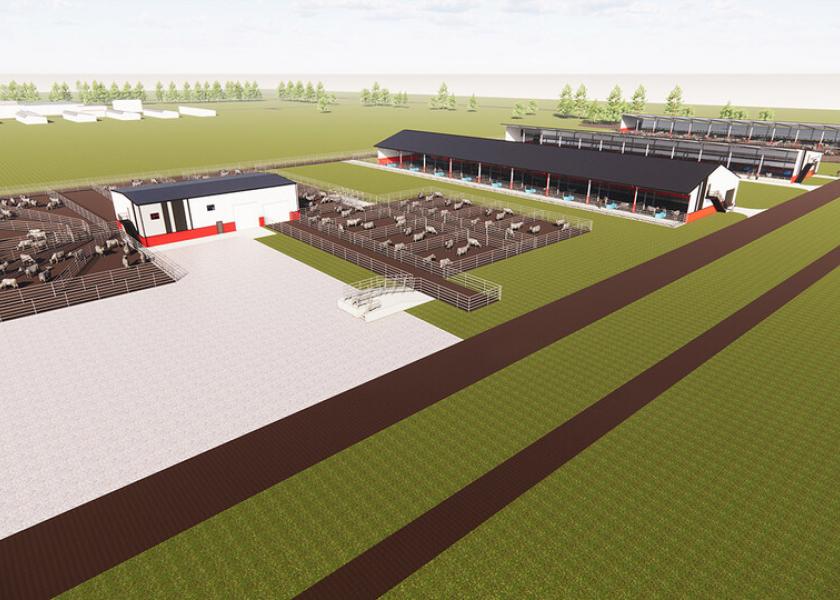JBS USA Gives $700,000 to Nebraska Feedlot Innovation Center

JBS USA has made a gift of $700,000 to the University of Nebraska Foundation to support the University of Nebraska–Lincoln and its plans for a new Feedlot Innovation Center near Mead.
Located at the Eastern Nebraska Research, Extension and Education Center, the Feedlot Innovation Center will provide new capacity to develop and evaluate emerging technology used in managing animals in feedlot settings. With a state-of-the-art, commercial-scale feedlot and animal handling facility, it will be used in teaching, research and extension efforts by the Institute of Agriculture and Natural Resources.
The Feedlot Innovation Center has an estimated construction cost of $5 million. IANR has committed $2 million in funding, with the NU Foundation leading a $3 million private fundraising initiative. To date, nearly $2 million has been committed in private support.
“This facility will advance the university’s commitment to science-driven innovation in the development of resilient systems for food animal production,” said Michael Boehm, Harlan Vice Chancellor for IANR and NU vice president for agriculture and natural resources. “We’re grateful for the support of JBS USA and other partners who understand the far-reaching value of this new facility for advancing beef production and preparing future leaders to serve this incredibly important industry.”
Steve Cohron, president of the Fed Beef Division at JBS USA, said this project aligns with the company’s long-term commitment to the beef industry and its farmer and rancher partners in Nebraska and surrounding states. It also has the potential to unlock breakthrough technologies that will benefit American producers, the climate and the company’s net-zero pledge.
“JBS USA is excited to support the new Feedlot Innovation Center, and we believe the type of research and learning this facility will provide is imperative to ensuring a more sustainable food supply,” Cohron said. “This initiative aligns with our goal as a company to achieve net-zero greenhouse gas emissions by 2040, and we hope our investment, in partnership with the University of Nebraska and other contributors, will spur new innovations that strengthen the entire beef value chain.”
Other lead contributors who have supported the Feedlot Innovation Center project include John and Beth Klosterman of David City, who gave $500,000. The Klostermans have supported the University of Nebraska for more than 45 years. Farm Credit Services of America has given $300,000 to the project.
The Feedlot Innovation Center will include a complex with cattle comfort and research buildings, a feed technology facility, innovative open lots and an animal handling facility. It will create real-world facilities to test new precision technology, solve environmental challenges facing the feeding industry, and improve cattle performance and welfare while comparing different environments and housing systems. The project will also allow for innovation in manure collection and management that will innovate both new and possible modifications for existing operations.
The Feedlot Innovation Center will also allow students to gain hands-on experiences while being exposed to the newest research and technology.
The center is part of a larger university initiative that is aligned with the mission of IANR to produce food, fuel, feed and fiber for a growing world in a way that promotes resilience of natural resources and a high quality of life for people engaged in agriculture.







